As March unfolds and St. Patrick’s Day festivities commence, amidst the choice of a pint for many, it's important to pause and address the topic of liver health. The liver has many roles in the body:
As a result of these key functions, liver dysfunction can have a cascade of effects including:
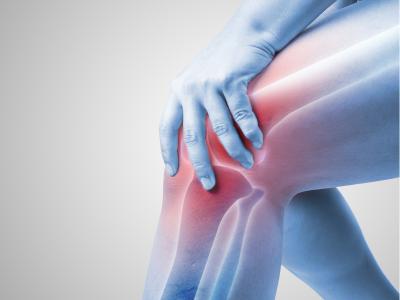
Is that last one a surprise to you? It was to me! I was listening to a podcast on kissing spine— an arthritic condition in horses that has become more prevalent. The discussion went to findings in dissections of horses with kissing spine showing bone level bruising throughout the body AND liver pathologies, and that further, when horses with kissing spine were given liver supportive treatments, the disease progression slowed dramatically or even stopped. So I had to dig deeper—was there research into the role of liver dysfunction in arthritis in people? And the answer was a resounding yes.
Now in classical biomedical standards, the liver is not considered diseased until it’s near failure— jaundice, ascites, major problems...but there is also a clear association in the literature between hepatitis B infections and arthritis. So why wouldn’t earlier-stage liver issues from other causes have the potential to cause joint and bone changes? The research certainly points that way. Given all the things our liver does for us, I’ve had a change in perspective. With the abundance of liver-supportive herbs available to us that are safe, why not just plan on a quarterly liver cleanse to help keep that lovely organ happy and healthy?
*If you take supplements, herbs, or prescription medications—do review this protocol with your health care provider or herbalist*

Do keep in mind—all the cleanses and tonics in the world won’t be able to make up for a poor diet! So on a daily basis, remember that your food and drink choices matter! Sugar, alcohol, and junk food add a strain to your liver. Herbal teas, nutrient-rich veggies, and fruits support your liver.
On a daily basis the following herbs can gently support your liver and blood:
In terms of a safe liver cleanse, MediHerb has some lovely herbal complexes to both cleanse and support the liver. So every quarter, I recommend the following protocol: Raja Wellness Quarterly Liver Cleanse
Starting the cleanse with LivCo around the full moon taps into the clearing energy of this celestial body (stay tuned next month where I discuss parasite cleanses and the pull of the full moon for more details). Then take a break for a few days and start the “tonifying” phase with Livton to support the liver as the energy of the new moon helps guide the herbs into a building phase. For most people, doing this 4 times per year will be sufficient. If you don’t regularly take prescription medications, aren’t drinking alcohol on a weekly or daily basis, get plenty of exercise, and manage your stress—then 1-2x per year will be plenty for this cleanse.
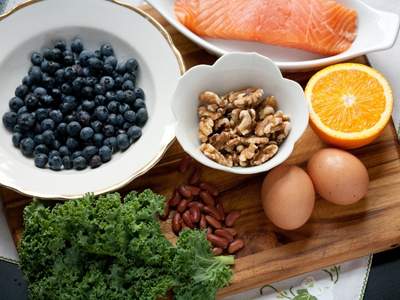
In addition to the herbs, I recommend following a liver-friendly diet rich in plant-based proteins, vegetables, and some high-quality fish in addition to nuts, olive oil, and fruits. There is a multitude of research into nutrition for longevity, reduced disease, and health. The common theme among these findings is: to eat a diet high in vegetables, plant-based proteins, and whole grains with small amounts of fruits, grains, and animal proteins. Olive oil, coconut oil, and nuts all have protective properties for the brain and liver. As Jack Lalanne used to say “The longer the shelf life, the shorter your life”. Those handy packaged “foods” are often no longer actual food but merely a food-like product!
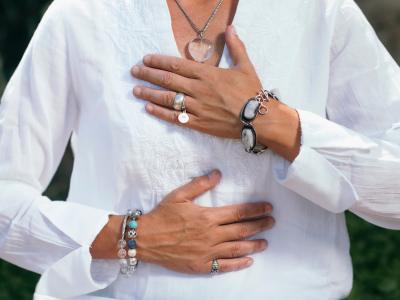
Stress and psychological factors have a direct impact on the function of the liver. The more you can regulate stress through lifestyle and exercise, the better the liver will function. In Traditional Chinese Medicine, the liver is represented by the wood element—spring is the time of liver growth with new growth reaching and bending to new heights. A healthy wood element is flexible like the young tree, bending with the wind rather than breaking. The color associated with the liver is green and stones like peridot and malachite can support liver function. And yes, regular acupuncture has been shown to reduce stress and increase overall health- even for healthy patients a quarterly “tune-up” with your acupuncturist can keep new problems from emerging. For patients with a high-stress life or who engage in intense physical training- monthly sessions help keep problems at bay.
Written by Jayelah Bush, BScN
Medically reviewed by Dr. Natacha Montpellier, ND, B.Sc.
Article Courtesy of Fullscript
Bone broth (stock) is a liquid made from simmering bones in water over a period of time. Drinking bone broth on its own, or using it as a base for soups and other dishes, is a great way to get its health benefits. Bone broth contains many important nutrients, including amino acids, collagen, and protein. (11) Scientific evidence suggests that the nutrients in bone broth may support digestive health, joint health, a healthy immune system, and more.
Keep reading below to learn about bone broth benefits, and how to make your own bone broth at home.
Amino acids, the building blocks of proteins in our cells and tissues, are one of the main components of bone broth. Proteins are used within the body to perform many bodily functions as well as repair, build, and grow bodily tissues. (7)(15) Research indicates that the components of bone broth can benefit the body from head to toe, from mental health to skin health.
Bone broth is a good source of the amino acid glycine, which plays a key role as a neurotransmitter (messenger between nerves and cells), influencing brain development, motor skills, and behavior. (4)(11)(18) Glycine also has anti-inflammatory and antioxidant properties. Research demonstrates that glycine can decrease neurological (brain and spinal cord) damage related to oxidative stress in mice. (22) Cellular damage related to oxidative stress can negatively affect the nervous system, potentially playing a role in the development of neurological diseases such as Alzheimer’s disease and Parkinson’s disease. (19)
Beef bone broth is rich in the amino acid glutamine, the most abundant and widely used amino acid in the body. (7)(11) About 30% of total body glutamine is used by the digestive tract to support intestinal health. Its functions include supporting a healthy inflammatory response, maintaining the intestinal barrier, and regulating intestinal cell death. (10) In gut health conditions such as inflammatory bowel disease, glutamine levels are significantly lower than healthy individuals. (8) Regularly drinking bone broth may help increase glutamine levels to support digestive health. (11)
Not only is glutamine a key nutrient for a healthy gut but also a healthy immune system. Leukocytes (white blood cells) require glutamine for proper function. During illness or injury, glutamine is used by the immune system just as much, if not more, than glucose (sugar), the main source of energy for the human body. Glutamine can be created within the body, but levels are often insufficient during times of illness. Research indicates that supplementing with glutamine before or after a major health event, such as bone marrow transplantation, radiation treatment, or surgery, may be beneficial for immune health. (7)
Joint pain related to osteoarthritis (joint damage) is one of the most common causes of chronic pain, affecting millions of North Americans. (6)(17) Osteoarthritis occurs when joint cartilage (tough, flexible tissue) degrades, causing bones to scrape against each other as the joint moves. This can eventually cause pain and negatively impact all areas of connective tissue, including bone, cartilage, ligaments, and tendons. (5)(13) Collagen is the main structural protein found in skin and other connective tissues, such as cartilage. Collagen can be synthesized in the body using amino acids, or obtained from dietary or supplement sources. (23) Consuming more collagen and collagen-building amino acids and nutrients may be one way to promote bone and joint health. (2)(17)
Bone broth is a good dietary source of collagen and collagen-building amino acids. (11) Clinical and animal research has demonstrated that supplementing with collagen extract derived from chicken bones, like that from chicken bone broth, may be effective for decreasing joint pain. (12)(20)
Skin, the body’s largest organ, contains up to 70% of collagen, which plays an important role in maintaining skin structure and elasticity. (3)(21) Aging reduces collagen production within the body, which can weaken skin elasticity and strength, causing the skin to become thin, dry, and wrinkled. (3) Research suggests that collagen is a major component in the “anti-aging” of skin. (21) Bone broth collagen may be just what your skin needs for a youthful glow.
Bone marrow is the fatty, soft, spongey tissue found in the center of most bones. Marrow bones (e.g., femur) are good choices for bone broth as they contain high amounts of collagen and amino acids. As a fatty tissue, bone marrow is also a rich source of vitamin D, which is stored in fat. One reported case has noted that regularly drinking high volumes of bone broth, notably beef bone broth, may lead to hypervitaminosis D (excess vitamin D). (16) Hypervitaminosis D can lead to hypercalcemia (excess blood calcium) which can cause serious health complications, including fragile bones, fatigue, and vomiting. (14)
In addition to the important amino acids and key nutrients found in animal bones, there may also be trace amounts of heavy metals, such as lead. However, research indicates that the levels of heavy metals present in bone broths are not considered dangerous, falling within the Maximim Residue Limits (MRLs) established by the U.S. Department of Agriculture. (9)
Making bone broth at home on the stovetop or in a slow cooker is the best way to get its amazing health benefits. A study reported that store-bought bone broth was found to be lower in all amino acids than the self-prepared varieties. (1) While it may sound daunting, making your own bone broth is actually fairly simple.
Simple bone broth
Prep time: 15 minutes Cook time: 18-24 hours
Total time:~24 hours
Servings: 4 servings
Notes: Although not necessary, roasting your bones before simmering can improve the flavor of the broth.
Limit toxin exposure by using bones from organic, sustainable, grass-fed, pasture- raised, and/or free-range sources.
Add vegetables, herbs, and spices to enhance flavor and nutrients.
Ingredients
2-4 lbs (1-2 kg) chicken or beef bones
1 gal (4 L) water
2 tbsp (30 mL) apple cider vinegar
Preparation
The health benefits of bone broth come from its rich nutrient content, including the protein collagen and its related amino acids. Consuming bone broth may support a variety of health facets, including mental health and joint health. Bone broth is mostly considered safe, but may contain trace amounts of heavy metals and can lead to vitamin D toxicity if consumed in excess. Sourcing high-quality animal bones and making bone broth at home is one way to limit toxin exposure and increase the nutrient content. If you’re a patient, consult with your integrative healthcare provider before making any major changes to your diet.
Why are we so passionate about mental health at Raja Wellness?
The link between mental health and cardiovascular health is quite significant. Stress, especially chronic psychological stress, has a profound impact on the cardiovascular system. When the “stress response” is activated, the body secretes glucocorticoids, epinephrine, and other hormones, while inhibiting the secretion of growth hormone, insulin, and reproductive hormones. The sympathetic nervous system is also activated, leading to increased heart rate and blood pressure, among other physiological changes that divert blood to areas needed for immediate survival, such as the muscles and lungs, and away from non-essential areas like the gut and reproductive organs. This response is adaptive in the short term, but chronic activation due to chronic stress can lead to serious cardiovascular issues such as hypertension, atherosclerosis, and myocardial ischemia.
This connection between mental health and cardiovascular health highlights the intricate intertwining of psychological and physiological factors. The body's response to chronic stress can have detrimental effects on the cardiovascular system, emphasizing the importance of managing and addressing mental health to promote overall well-being, including cardiovascular health.
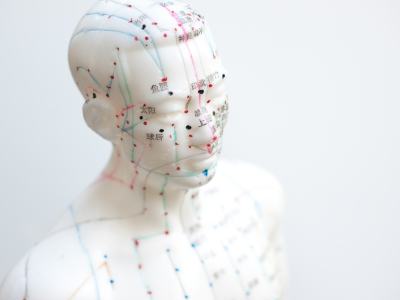
Acupuncture has many benefits for cardiovascular health:
1. Stress Reduction: Stress is a known risk factor for cardiovascular diseases. Acupuncture has been shown to modulate the body's stress response, potentially reducing the impact of stress on the heart and blood vessels.
2. Blood Pressure Regulation: Studies indicate that acupuncture may help in regulating blood pressure. By targeting specific acupuncture points, practitioners aim to optimize blood circulation and blood pressure levels, contributing to better cardiovascular function.
3. Inflammation Management: Chronic inflammation is closely linked to cardiovascular conditions. Acupuncture may exert anti-inflammatory effects, potentially reducing the systemic inflammation associated with heart disease.
4. Enhanced Circulation: The stimulation of acupuncture points is believed to enhance microcirculation, improving blood flow to vital organs including the heart. Enhanced circulation can promote heart health and overall cardiovascular function.
5. Complementary Therapy: Acupuncture is often used as a complementary therapy alongside conventional medical treatments for cardiovascular issues. It may help alleviate symptoms, improve overall well-being, and enhance the effects of standard cardiovascular care.
While acupuncture has clear benefits for cardiovascular health, we recommend individuals consult healthcare professionals before integrating acupuncture into their treatment regimen. Moreover, acupuncture alone may not be enough for people dealing with chronic stress.
Learning to manage our stress is a key part of maintaining heart health—and that’s where professional mental health care is so important as part of your overall wellness.
Herbal formulas also play an important role in heart health. Many formulas have been shown to reduce cholesterol and blood lipid levels, decrease inflammation, and increase peripheral circulation. For example, Clear Mind Formula is one of my favorite herbal formulas for heart health, especially here in Kentucky because of its natural antifungal and antimicrobial properties. This is a raw herbal concoction that we make in-house. We do recommend consulting with a trained herbalist before incorporating any herbal remedies into your care plan.
or
For more information, please don’t hesitate to call us at 270-506-3853 today!
References:
1. Wayne PM, Kaptchuk TJ. Challenges inherent to t'ai chi research: part II-defining the intervention and optimal study design. Journal of Alternative and Complementary Medicine. 2008;14(2):191-197.
2. Fu, C., Zhao, N., & Liu, Z. (2013). Chronic pain: acupuncture and related therapies. Springer Science & Business Media
3. Chen J, Ye C, Yang Z, Zhang C, Li P, Xu B, Wu A, Zhang X, Xue X. Erchen decoction to reduce oxidative stress in dyslipidemia phlegm-dampness retention syndrome mice: In vivo mechanism revealed by metabolomics (liquid chromatography-mass spectrometry). Phytomedicine. 2023 Jul;115:154808. doi: 10.1016/j.phymed.2023.154808.
In honor of Father’s Day, I wanted to take this opportunity to highlight how acupuncture and TCM helps men’s health; and to remind men that they need to take care of themselves too. Statistically men are less likely than women to seek health care and married men tend to see the doctor more often than single men, but still less often than women (even accounting for pregnancy needs). One of the biggest complaints I hear from male patients is they are too busy or they don’t want to walk out with another pill to take.
I started this with a search of “top reasons men go to the doctor” and could only find research and articles on why men should go to the doctor—it seems we haven’t really looked at why they do go when they do in much detail. I did find this gem from The Cleveland Clinic and their support of the MENtion It Campaign—an initiative to encourage men to seek care. Despite the fact that the majority of men want better health to care for their families, less than half of those who listed that as a priorit, seek regular care.
The top reasons why? They don’t want to know they have to make a lifestyle change, or fear of finding out what they have. We get it—but there are better options than neglecting your health. And if you don’t want to take a pill when things are going wrong, yes, you will need to make a change. But aren’t you and your family worth it? So if you have an issue—MENtion It! We are here to listen.
One advantage acupuncture has over other options is we treat the whole body during a session—you may be coming in for back pain or knee pain, but we will also be addressing sleep, digestion, immune function, endocrine balance and more. If you think about it, it is truly a great value! Similarly, our approach using herbal formulas is to select a formula that addresses as many issues at once as possible—so you can take one thing and have multiple issues get better. And unlike just treating a symptom, when we are able to get to the root of the problem, and as a result, you feel better and stay that way even without being on herbs all the time.
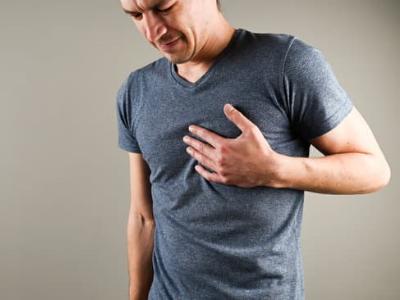
Menopause gets a lot of notice, but did you know men go through a similar process called Andropause? First written about in 1946, a landmark paper in JAMA entitled, “The Male Climacteric” characterized it with nervousness, reduced potency, decreased libido, irritability, fatigue, depression, memory problems, sleep disturbances, and hot flushes. Hypogonadism is broad scientific term and it refers to a “clinical syndrome caused by androgen deficiency, which may adversely affect multiple organ functions and quality of life.”1 Decreasing testosterone levels are linked to a number of disease processes and shorter life-span. The traditional approach is supplemental testosterone, but acupuncture and traditional East Asian herbal medicine have also been shown to regulate testosterone levels in the body, improve mood, sleep, endocrine function and cardiovascular health.
Speaking of hearth heath—statistically 1 in 4 men will die of heart disease and it’s complications. Men tend to develop heart disease earlier in life than women and are less likely to make the lifestyle changes necessary to reverse heart disease. Coronary artery disease is one of the most common forms of heart disease among men and responds incredibly well to lifestyle and diet changes. Tons of this research can be found here.
JAMA: Intensive Lifestyle Changes for Reversal of Coronary Heart Disease
If you made it this far into the article, congratulations! As a thank you for being loyal reader, use the code “mentionit” for 10% off you next order from our website. Discount code valid 6/15/23 - 7/15/23. Not valid with other offers, not valid for gift cards. Other restrictions may apply.
Did you know half of men who have heart attacks have no symptoms before it happens? Or perhaps, didn’t know they were having symptoms. One of the earliest signs of heart disease is erectile dysfunction. Another early sign of heart disease is new onset anxiety2. Mental health issues and heart disease are often tangled together and in many cases of anxiety being caused by low grade (not yet detectable) heart disease, the typical anxiety medications don’t work well. Acupuncture is very effective for both mental health and cardiovascular health—and as we mentioned above, can address both issues in the same sessions!

Last, but not least is prostate health. Benign Prostate Hyperplasia responds very well to acupuncture and herbal therapies3. Acupuncture can increase urinary output, reduce the size of the prostate, and beyond hyperplasia is effective for treating Prostatitis as well.
Harvard Study on Acupuncture Relieving Prostatitis Symptoms
These results tend to be long-lasting after the initial course of treatment. Prostatitis alone is responsible for over 2 million doctors visits a year, and is often recurring and has no clear cause. So even if we can’t convince you to see your doctor once a year (yet), schedule an appointment with one of our acupuncturists, check out our online resources, and remember—Dads are an important part of the family and it’s important they get the care they need so they can take care of others!
1 Singh P. Andropause: Current concepts. Indian J Endocrinol Metab. 2013 Dec;17(Suppl 3):S621-9. doi: 10.4103/2230-8210.123552. PMID: 24910824; PMCID: PMC4046605.
2 Celano CM, Daunis DJ, Lokko HN, Campbell KA, Huffman JC. Anxiety Disorders and Cardiovascular Disease. Curr Psychiatry Rep. 2016 Nov;18(11):101. doi: 10.1007/s11920-016-0739-5. PMID: 27671918; PMCID: PMC5149447.
3 Zhang W, Ma L, Bauer BA, Liu Z, Lu Y. Acupuncture for benign prostatic hyperplasia: A systematic review and meta-analysis. PLoS One. 2017 Apr 4;12(4):e0174586. doi: 10.1371/journal.pone.0174586. PMID: 28376120; PMCID: PMC5380320.
May is a month loaded with great awareness campaigns—most of which we see routinely in our clinic: Lyme, Mental Health, Ehlers-Danlos Syndrome, and Celiac Disease. Two of those are largely genetic—Celiac Disease and Ehlers-Danlos Syndrome—and while we can’t change your genes, acupuncture, herbs, and appropriate nutritional support can greatly improve the quality of life for patients with these conditions.
Our favorite supplements for Ehlers–Danlos Syndrome are available below; but please note these options are not all vegan or gluten-free so please contact our office for help choosing replacement products for this protocol if you need to avoid mammal or gluten:
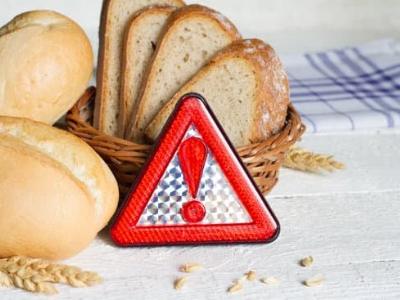
Celiac Disease & Gluten Intolerance—What’s the Difference?
As far as Celiac Disease, there is a wide range of experiences: from those with an allergy to gluten creating the sensitivity, to those with true Celiac disease who simply won’t be able to effectively process gluten, to those who aren’t allergic—but react to the lectins in gluten and have an inflammatory response to these grains. While conventional thinking says allergies can only be managed and not treated, we are seeing people’s allergies actually go away (even as measured with IgE in the bloodwork) as a result of a highly specialized technique called “Soliman’s Auricular Allergy Treatment” pioneered by Dr. Nader Soliman, MD, LAc. While this technique is most widely known for helping people with alpha-gal allergies (an allergy to a carbohydrate found in mammal products triggered by tick bites) it actually is effective for most allergies.
We have helped people with nut allergies, dairy allergies, animal allergies, and even severe environmental allergies—not just pollen, dust, and molds, but more rare allergies such as sunlight and water! Gluten allergies also respond very well to this treatment; which brings me back to my earlier point about allergies vs. genetic limits vs. inflammatory response to other elements of gluten. For someone coming in with just a gluten allergy, this treatment will normally allow them to eat gluten without a reaction if they had a measurable IgE response to gluten in the past, and in many cases, this will disappear. Those with a genetic intolerance (what we refer to as “true Celiac”) still can’t eat gluten routinely after SAAT, but if they are accidentally exposed to gluten, they report that the reactions are greatly reduced. A similar effect is reported among those with lectin intolerance; they can’t always eat as much as they want, but small amounts and cross-contamination don’t cause the severe reactions they used to have.
For those with true Celiac—the reduced reactivity is a welcome relief; allowing them more options to enjoy meals with friends and family who may not realize what “gluten-free” really means even with the best intentions. For example, many people know that wheat has gluten, but they don’t realize most beers contain gluten. Foods like soy sauce and many spice blends contain small amounts of gluten as well, and for people with Celiac disease, even small amounts can create distressing reactions. Worse yet, labeling requirements are very bad in the US and many products contain unlabeled sources of gluten! In more severe cases, even topical exposure to gluten through lotions, soaps, or hair care products can create a reaction (though so far those reactions seem to be greatly reduced even in the most severe cases after SAAT).
Have someone in your life who needs to be gluten-free?
We created this handy guide of safe foods and hidden sources of gluten for reference!
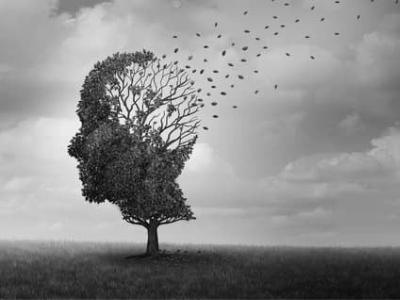
The Hidden Cost of Lyme Disease
Lyme Disease may be one of the most pervasive and least frequently diagnosed conditions in the US. The current standard test, the ELISA test is estimated to be 70% accurate, but some independent testing has shown the current standard of combining an ELISA test with a Western Blot Test (which is reported to be 99% accurate) may be off more than 50% of the time, especially in cases of neurological Lyme. Worse yet, most doctors haven’t read the research about how a history of concussion or whiplash can make someone up to 80% more likely to develop chronic neurological Lyme because of damage to the blood-brain barrier. If there are other underlying chronic pathogens such as Epstein Barr Virus or Covid, those numbers very quickly get much worse. Diagnoses of Lyme Disease from Columbia University Medical Center
So in a month of Mental Health Awareness—why am I writing about misdiagnosed Lyme?
“People with psychiatric disorders related to Lyme disease may experience symptoms like fatigue, depression, anxiety, brain fog, rage, sleep disturbances, Bipolar disorder, and more. The longer that Lyme disease goes untreated, the more likely a patient is to develop these symptoms and disorders.”
The Effects of Lyme Disease, igenex.com
Chronic Lyme can also cause autonomic neuropathy. In these cases, the range of symptoms that can emerge is extremely broad and often leaves providers perplexed because the usual tests for those conditions will all be “normal”. Autonomic Neuropathy, Medscape
Arguably this subject can fill a book (one that I am working on) but suffice to say, many of the treatment strategies that are key to recovering from Lyme are beneficial for mental health, even in the absence of Lyme. Without going too far down into the weeds, it’s important to feed the body real food, minimize sugars (even hidden sugars like grains and breads), focus on nutrient-dense veggies for about 70% of your diet, and then find a balance of grains, fruits, and meats for the remaining 30% that keeps you feeling good. The same goes for mental health—better nutrition supports better mental health. In addition, nutrition to support the mitochondria in the cells can make a huge difference. Some of our favorites can be found here:
Feeling overwhelmed with how to eat healthy? Check out our free Facebook group, Raja Wellness Ways to Health for recipes, tips, inspiration, and to share those techniques that work for you!
Need one-on-one support? Clean Good Eats is a great resource—they have group classes on healthy cooking, or you can reach out to Dr. Sakinah Bunch for private coaching.
Yours in Health,
Jenny-Marie